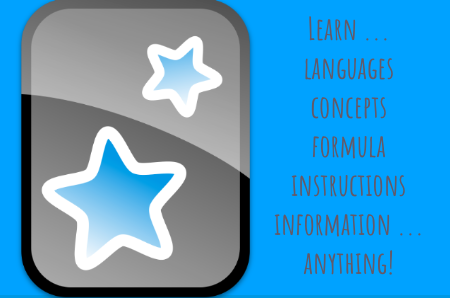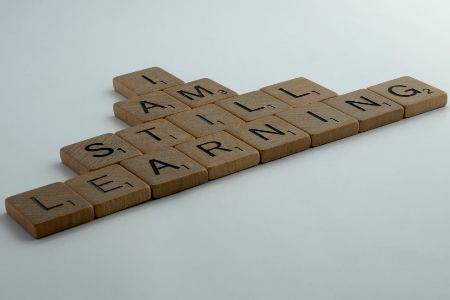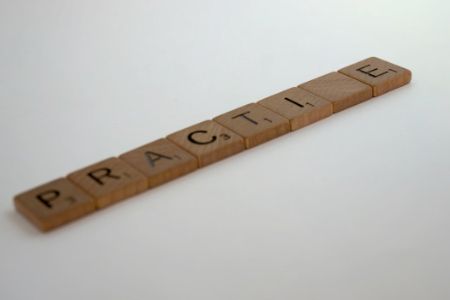Anki Personal Memory 🧠 System
The impressive Michael Nielsen looks at how personal memory systems work — how Anki helps to memorise almost anything using a distributed practice review schedule. So, known cards are reviewed at ever increasing time intervals and unknown cards — sooner.

The argument is that this spaced-repetition style learning is more efficient and effective — the more you remember the less you have to review. Nielsen has two rules around this premise … one, if memorising a piece of information is worth 10 minutes of time then that information becomes a card (is Ankified). And two, any data of interest is entered into Anki. This process, in turn, develops the skill of what to memorise.
Anki makes memory deliberate — by making it a choice. Michael Nielsen, quantum computing scientist.
Nielsen uses Anki to learn in many areas … scientific research papers, books, talks etc., to recall anything of interest. His card reviews take 20 minutes each day — whenever/wherever there is time — finding the habit ‘meditative.’ He makes the cards with the desktop app but uses the Anki mobile client.
Interestingly (if not helpfully), he details how he had trouble getting started with Anki and making it a life habit. Success came about when he found it useful to learn for a personal project where he memorised a short book about Unix command line concepts and commands. As a result, he realised how useful Anki can be for learning anything which, itself, helps make it a habit.

For difficult information he skims the complex material first and makes simple atomic (where question and answer express a single idea) cards and this can create a background understanding — making it much easier to build towards comprehension in subsequent readings.
Again, this can be particularly effective when done in conjunction with the aforementioned personal projects — creating 5-10 Anki questions per area of interest. So, to atomise, Create a symlink from
…
Q1 : What's the basic command for symlinks?
A1 :ln -s Q2 : What's the order of symlinks?A2 :linkname thenfilename
And this breaking down process becomes habitual atomising.
Anki can also be used for syntopic readings of material — covering entire fields of information by groking the most important resources. Then, over time, shallow reads of many other related resources can fill in the blanks and reinforce what has been learnt.
Neilsen Recommendations … 🫵
- Ankify that which serves your long-term goals.
- Use one main deck — broken down into subdecks.
- Avoid orphan questions — make everything related to something.
- Don't share decks — keep them contextual for you.
- Avoid the complex Anki features for features sake.
- For seminars, Ankify at least three quality questions, afterwards.
- Take notes — don't let these build up or Ankify as you go!
- Reading may be slowed down considerably — set limits!
- Limit
Yes/No questions — there's little understanding.
There's a major difference between remembering facts and mastering processes e.g., remembering a Unix command isn't the same as knowing when to use it. So,
Declarative knowledge becomes procedural knowledge.
Anki can also be used for more abstract questions like
You can use Anki for learning ‘lines’ (as in theatrical or appropriate responses to upcoming
In such situations … fluency matters! Because, as Nielsen suggests, memory is the foundation of cognition — evidenced when looking at why people don't understand highly complex matters — they don't know the basic notation and terminology — which rote learning can assist.
Trying to compose a French sonnet but only knowing 200 words of vocab — ends badly.
So, if memory of the basics is the largest barrier to understanding something, a system like Anki can overcome that barrier. As with chess — where masters learning 25-100 thousand chunks of moves lets them see the board differently to novices. And, mathematicians have internalised thousands of chunks of maths — through grit to reach their level of expertise.
Neilsen also references the capacity of working memory as seven chunks varied between individuals and a correlation between that working memory capacity and general intellectual ability … people with lower IQs but with more complex chunks may reason about more complex information and situations than those with higher IQs but fewer/less complex internalised chunks.

Anki works due to distributed practice “Read the post: Which Learning Techniques Work?”). Memories decay over time so practicing at optimal points over time assists in the retention of information. This is complex, but automated by Anki.
Below are examples of the Anki process …
APIs 🫵
Rather than learn the full
After this, work on relevant tutorials and begin adding things you're likely to use repeatedly to Anki. A reworking through that (or another related) tutorial can reveal even more information for Anki. Second passes are fast but there's more knowledge and context to assist finding what's to be added.
Again, find some working code to start with before Ankifying.
The
- ↜ Previous: Religion is More Ridiculous than 👸 Royalty
- ↝ Next: Rules for Effective 🙇 Learning